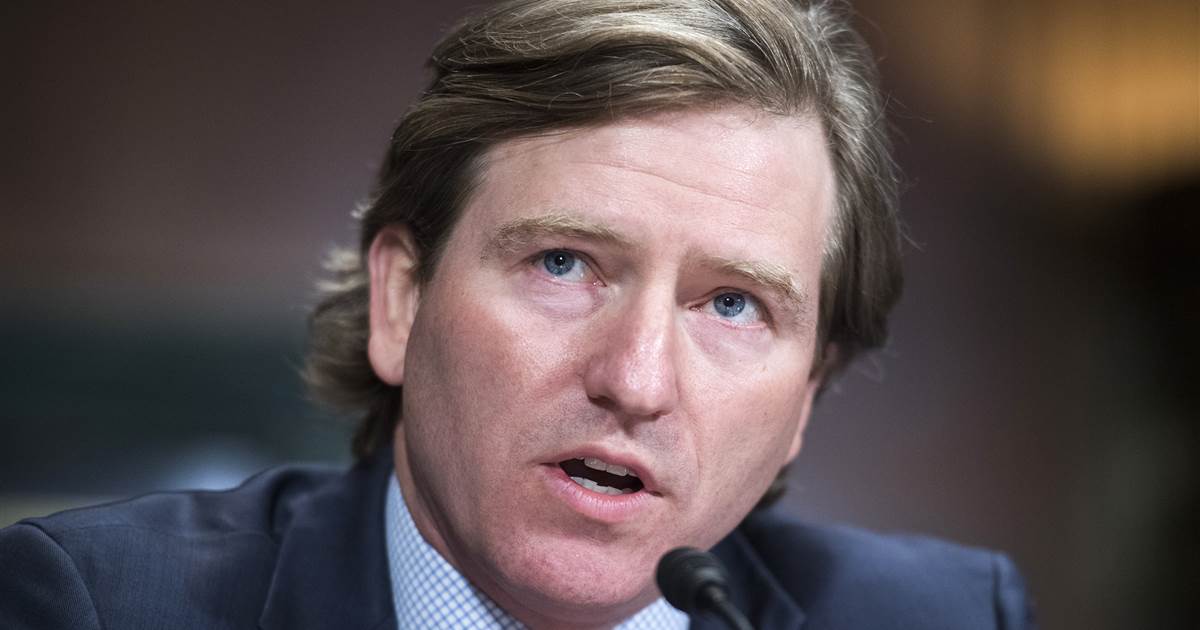Trump fires head of U.S. election cybersecurity who debunked conspiracy theories

Christopher Krebs, who led the federal government’s election cybersecurity efforts, has been fired by President Donald Trump.
Krebs, the director of the Cybersecurity and Infrastructure Security Agency, or CISA, had recently butted heads with the White House over his agency’s Rumor Control blog, which rebuts a list of false claims about election fraud and hacking — many of which have been touted as real by Trump or his lawyers after he lost the election this month.
Trump tweeted Tuesday night that Krebs had put out a statement concerning the election that was “highly inaccurate,” apparently a reference to a joint statement Thursday from CISA, the Election Assistance Commission and groups that represent the chief election officers in every state. The statement read, in part, “There is no evidence that any voting system deleted or lost votes, changed votes, or was in any way compromised.”
Trump has said repeatedly that the election was rigged, even though no evidence has substantiated the claim and numerous state and federal agencies have said the election was legitimate.
Krebs has been one of the most vocal government officials debunking baseless claims about election manipulation, particularly addressing a conspiracy theory centered on Dominion Voting Systems machines that Trump has pushed.
In a subsequent tweet, Trump maintained that the election did not suffer from foreign interference, but he again referred to Dominion Voting Systems.
Shortly after Trump’s announcement, Krebs tweeted: “Honored to serve. We did it right.”
Trump appointed Krebs, a former policy director at Microsoft, director of what is now CISA in 2017, in the wake of Russia’s 2016 election interference campaign and the outgoing Obama administration’s declaration that elections systems would become critical infrastructure.
While the agency, which is part of the Department of Homeland Security, provides security assistance to a number of industries, like manufacturing and the energy grid, Krebs had become the face of the government’s election cybersecurity efforts, which included wrangling both the heads of elections from all 50 states and the broader hacker community.
Both groups are historically skeptical of the federal government, but under Krebs’ direction, CISA has been able to make inroads with both. He became a fixture at the country’s major cybersecurity conferences and persuaded highly regarded hackers to join CISA.
He also won over state election officials from both parties, hosting national joint election security walkthroughs and persuading every state to install cyberthreat information-sharing sensors. Noting that some states were unable to receive intelligence briefings in 2016 because some information about Russia’s activities was classified, CISA oversaw an initiative to get at least one person with security clearance in each state.
A senior agency official called Krebs’ firing “a sad day” for the agency and said he had resisted calls to echo misleading claims.
“Chris didn’t compromise himself or this mission,” the senior official said.
Earlier Tuesday, CISA announced that Krebs would be speaking for the agency at two livestreamed talks held by third parties.


